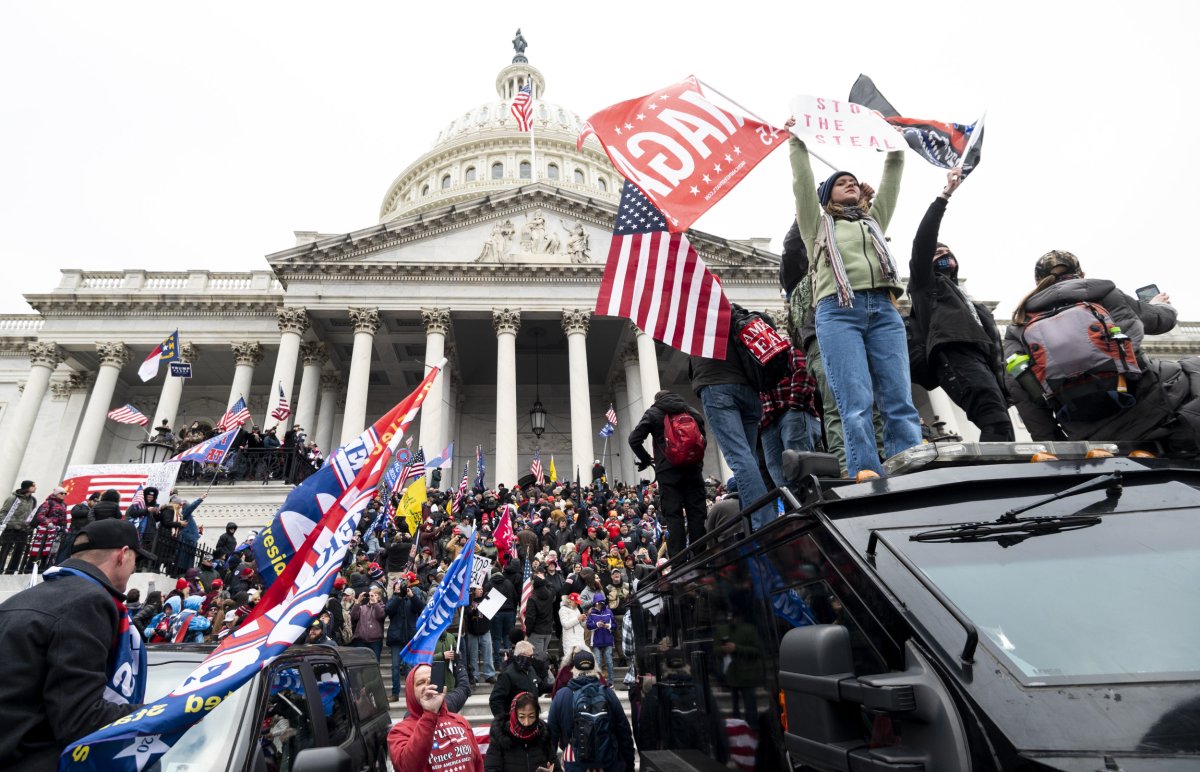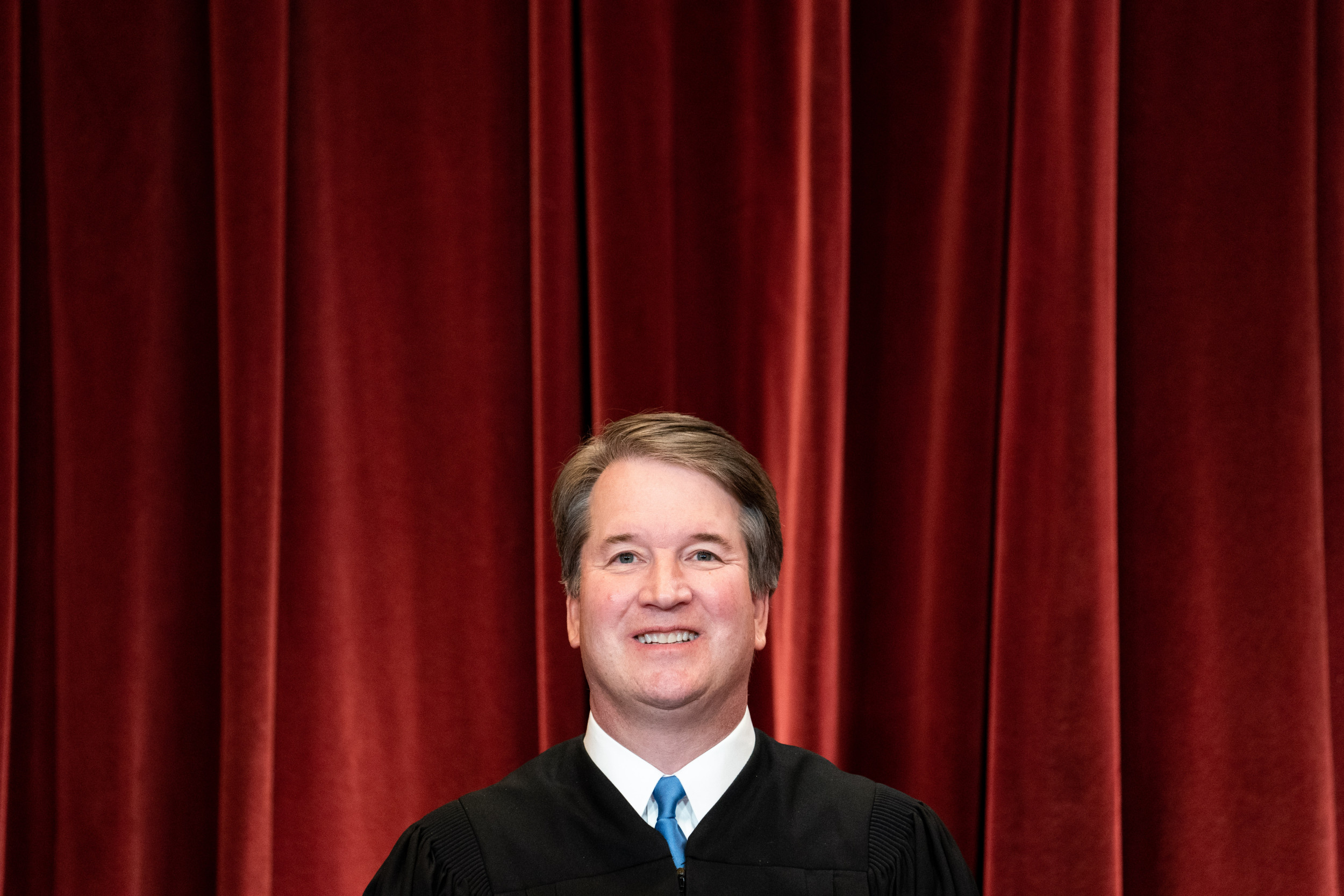On April 16, the Supreme Court will hear oral arguments in Fischer v. United States, a case that centers on the elasticity of the felony charge of obstructing an official proceeding.
The central question revolves around the interpretation of 18 U.S.C. § 1512(c)(2), which makes it illegal to "corruptly" obstruct, influence, or impede an "official proceeding." The debate is whether this should be narrowly construed to apply solely to acts of tampering with evidence or records, or more expansively, to include the physical obstruction of congressional proceedings.
This statute, invoked more than 300 times in the wake of the Jan. 6, 2021, siege on the Capitol, now begs the question: How wide should the net of justice be cast in the context of such national trauma?
This is not some legalistic quibble; it is a profound inquiry into the nature and scope of federal power.

"At heart, the Supreme Court is asked to decide whether the law's arm is long enough to encompass a broad array of obstructive acts, beyond the mere shredding of documents or the tampering of evidence traditionally associated with obstruction," said attorney Michael Epstein.
The fact that you probably haven't heard about this case before is a problem. This should be a case that we have thought and talked about for months, but it has flown below the radar because of how desensitized we've become to these politically motivated crimes. When we look at the facts and judicial history of this case, we really should be taken aback at how serious this is and how much we don't want to have to deal with any of this again.
Joseph Fischer, a figure who now symbolizes much more than his individual actions during the nation-changing events of Jan. 6, stands charged with the act of obstructing an official proceeding in his alleged conduct of physically disrupting the congressional certification of the 2020 election. His defense pivots on a narrow interpretation of the statute, asserting that the framers of the law intended it to apply solely to the physical destruction or alteration of evidence.
The district court initially dismissed the obstruction charges against Fischer and two other defendants, ruling that the statute did not cover their alleged conduct of physically disrupting the congressional certification of the 2020 election. However, the D.C. Circuit Court of Appeals reversed this decision, finding that the statute applies to "all forms of corrupt obstruction of an official proceeding."
The appellate court's stance underscores the seriousness with which the judicial system views the events of Jan. 6, and indeed, Fischer's appeal to the Supreme Court encapsulates a pivotal legal and moral battle over the extent of accountability for those dark hours.
The potential ramifications of the Supreme Court's decision stretch far beyond the legal fate of Joseph Fischer or the specifics of the statute in question.
A narrow reading, as Fischer's defense counsel urged, could significantly hobble the government's efforts to prosecute the Jan. 6 defendants on these grounds, potentially unraveling many of the cases built on the obstruction charge—a charge that carries with it the sobering possibility of a 20-year sentence.
Yet, the judiciary has largely favored a broad interpretation, seeing in the statute a necessary tool for safeguarding the sanctity of official proceedings from a wide spectrum of obstructive acts.
The Supreme Court's deliberations may also venture into the semantics of what it means to act "corruptly," a term that some argue should be confined to acts motivated by personal gain rather than the broader ambit of criminal intent.
As the nation watches, the Supreme Court's decision in Fischer will not only chart the future course of Jan. 6 prosecutions but also offer a profound commentary on the balance between the need to protect the democratic processes and the boundaries of criminal liability.
In other words, for those among us who fear that the upcoming presidential election has the potential to create one or more national emergencies that could resemble Jan. 6, what the Supreme Court decides in Fischer could define some of the rules of the road.
While the Supreme Court affirming the appellate court's broad reading of 18 U.S.C. § 1512(c)(2) would send a message in this election year, a narrow reading of this pivotal statute could limit a key tool used to prosecute not only the Jan. 6th rioters, but also any other future individuals who choose to extend their political beliefs to felonious actions.
But even if the Supreme Court's decision in Fischer isn't part of some future playbook, this case is emblematic of the ongoing struggle to interpret the law in the shadow of unprecedented challenges, a testament to the enduring task of defining and consistently re-defining justice in America's complex and ever-evolving democratic experiment.
About Aron Solomon
A Pulitzer Prize-nominated writer, Aron Solomon, JD, is the chief strategy officer forAmplify. He has taught entrepreneurship at McGill University and the University of Pennsylvania, and was elected to Fastcase 50, recognizing the top 50 legal innovators in the world. Aron has been featured in Newsweek, Fast Company, Fortune, Forbes, CBS News, CNBC, USA Today, ESPN, Abogados, Today's Esquire, TechCrunch, The Hill, BuzzFeed, Venture Beat, The Independent, Fortune China, Yahoo!, ABA Journal,Law.com,The Boston Globe, and many other leading publications across the globe.
The views expressed in this article are the writer's own.
Uncommon Knowledge
Newsweek is committed to challenging conventional wisdom and finding connections in the search for common ground.
Newsweek is committed to challenging conventional wisdom and finding connections in the search for common ground.
About the writer
To read how Newsweek uses AI as a newsroom tool, Click here.








